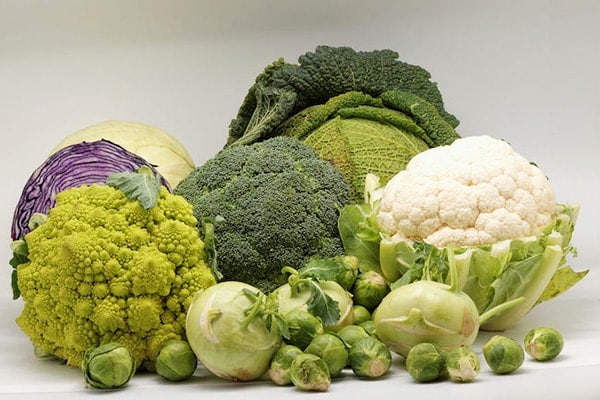A lot of health-conscious individuals are going crazy over cruciferous vegetables because of their detoxifying and anti-cancer properties. Scientist say that these veggies owe their superb health benefits to the sulfur-containing compounds in them called “glucosinolates”.
Wondering why cruciferous vegetables are called that way? Well, that’s because these super healthy vegetables bear four-petalled that resemble crosses.
There are many different available cruciferous vegetables for you to choose from. Available all year round, you are not going to have a hard time including them in your diet on a regular basis, which you should if you want to take advantage of the various amazing benefits they have to offer.
Before we tackle the said benefits, let us first take a look at some of the most popular cruciferous vegetables out there. You may be familiar with some of them, while others may sound new to your ears. Here they are:
- Cabbage
- Chinese cabbage
- Broccoli
- Cauliflower
- Brussels sprouts
- Kale
- Collard greens
- Bok choi
- Arugula
- Mustard (leaves and seeds)
- Turnip
- Mizuna
- Maca
- Radish
- Horseradish
- Watercress
- Rutabaga
- Wasabi
Indeed, there is a cruciferous vegetable that you can try each and every time. So what are the health benefits to enjoy for including them in your regular diet? Some of the most impressive ones include:
- Sharper vision. Cruciferous vegetables contain vitamin A. As you may already know, this nutrient with antioxidant properties is important for keeping your vision sharp. Experts say that a diet rich in vitamin A may help ward off loss of vision brought about by age-related macular degeneration.
- Pain-free joints. A compound in cruciferous vegetables known as “sulforaphane” impedes the action of an enzyme that damages joint tissues, leaving the joints painful and inflamed. What’s more, vitamin K present in cruciferous vegetables is also said to help combat osteoarthritis.
- Detoxified body. Experts say that glucosinolates found abundantly in cruciferous vegetable help in the synthesis of enzymes that help the liver in the process of converting poisonous substances into harmless ones, thus keeping them from bringing havoc to one’s health.
- Healthy and beautiful skin. Because cruciferous vegetables assist in having the body detoxified, the skin becomes clearer. There are also good amounts of vitamins A and C in these veggies, both of which are antioxidants that help protect the skin cells from damaging and age-accelerating free radicals.
- Reduced cancer risk. Some of the poisonous substances in the body that cruciferous veggies help neutralize are carcinogens. In layman’s terms, carcinogens are agents that can trigger cancer formation. By consuming cruciferous vegetables regularly, one’s cancer risk may be reduced considerably.
- Lifted mood. One of the many nutrients found in cruciferous is vitamin B9. More popularly known as folate, it helps increase serotonin in the brain, thus combating depression. There is also dopamine-boosting vitamin B6 around, which helps in making a person feel happier.
- Stronger bones. Cruciferous vegetables contain calcium, and everyone knows that this mineral is vital for strengthening the bones. What’s more, vitamins C and K are present in these veggies, too. Experts say that both nutrients are also role players in the fight against osteoporosis.
- Boosted immune system. Speaking of vitamin C, we all know that this particular nutrient is important in making the immune system strong. Because cruciferous vegetables are excellent sources of vitamin C, their regular consumption can help in fighting off disease-causing bacteria and viruses.
- Reduced weight. There is an abundance of dietary fiber in every serving of cruciferous vegetables. It’s for this reason why their inclusion in the diet on a regular basis can help promote weight loss. Since these fiber-rich vegetables are heavy in the tummy, hunger pangs or overeating can be avoided.
